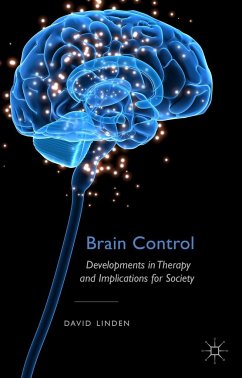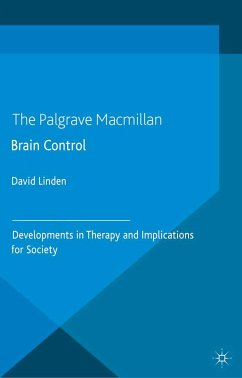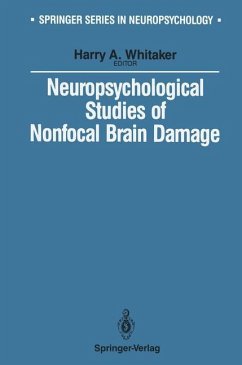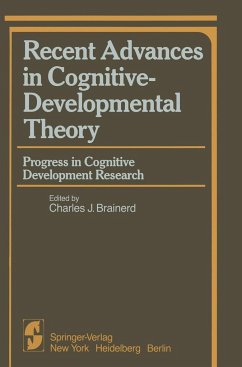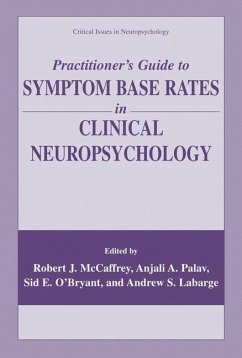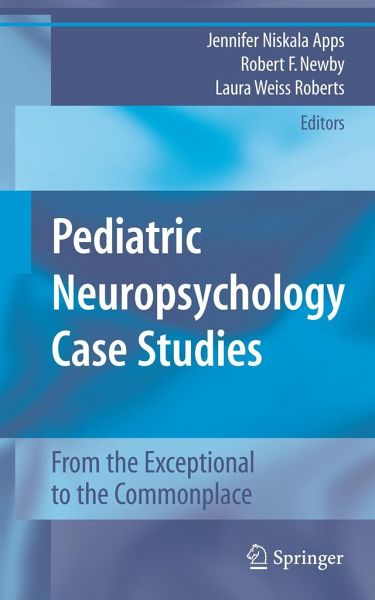
Pediatric Neuropsychology Case Studies
From the Exceptional to the Commonplace
Herausgegeben: Apps, Jennifer Niskala; Newby, Robert F.; Roberts, Laura Weiss

PAYBACK Punkte
83 °P sammeln!
In the recent literature, the most influential case study books in neuropsychology are in the adult realm. Pediatric neuropsychology is a rapidly developing field with increasingly greater influence in the assessment, diagnosis, early identification, and treatment of childhood illnesses. This book will provide the first centralized, comprehensive resource for case studies in pediatric neuropsychology. Not only will this supply a valuable compilation for the growing numbers of professionals in this field, but will also serve as an innovative and appealing resource for therapists, teachers, and ...
In the recent literature, the most influential case study books in neuropsychology are in the adult realm. Pediatric neuropsychology is a rapidly developing field with increasingly greater influence in the assessment, diagnosis, early identification, and treatment of childhood illnesses. This book will provide the first centralized, comprehensive resource for case studies in pediatric neuropsychology. Not only will this supply a valuable compilation for the growing numbers of professionals in this field, but will also serve as an innovative and appealing resource for therapists, teachers, and others interested in child development.
This book will be structured in such a way that readers can easily access individual cases of interest, as well as related areas of dysfunction. Section breakdowns will be provided in order to highlight the combined focus of case presentations in acquired neuropsychological dysfunction as well as developmental disorders. Each section will begin with an introductory chapter, highlighting the salient feature of the concept and providing brief, up to date reviews of the current research and theories. Within each global section, individual case studies will serve as stand-alone chapters. Contributing authors will be provided extensive guidance and coaching with regards to the standard format and information to be included in each chapter.
The first section of this book will present cases involving neurological disorders. The intention of this section is to provide not only "classic" examples of neurological dysfunction in children, but also to provide interesting cases of unique or remarkable presentations. The second section will present an accumulation of cases representing both common and progressive conceptualizations of developmental disabilities. Section three has been designed to highlight cases which often present complex issues to neuropsychologists. The case examples in this section will highlight the use ofalternative treatments, pathologies that are often a source of inquiry, and situations that lack the more rigorous scientific data often utilized in other diagnostic procedures. Additionally, this section may include chapters on common differential diagnosis dilemmas in clinical practice. Often multifaceted and even contradictory evidence can arise during evaluations, resulting in complex or problematic situations for the clinician. Such examples are difficult, by their nature, to forecast, but rather would be added during the book's development, as they occur.
This book will be structured in such a way that readers can easily access individual cases of interest, as well as related areas of dysfunction. Section breakdowns will be provided in order to highlight the combined focus of case presentations in acquired neuropsychological dysfunction as well as developmental disorders. Each section will begin with an introductory chapter, highlighting the salient feature of the concept and providing brief, up to date reviews of the current research and theories. Within each global section, individual case studies will serve as stand-alone chapters. Contributing authors will be provided extensive guidance and coaching with regards to the standard format and information to be included in each chapter.
The first section of this book will present cases involving neurological disorders. The intention of this section is to provide not only "classic" examples of neurological dysfunction in children, but also to provide interesting cases of unique or remarkable presentations. The second section will present an accumulation of cases representing both common and progressive conceptualizations of developmental disabilities. Section three has been designed to highlight cases which often present complex issues to neuropsychologists. The case examples in this section will highlight the use ofalternative treatments, pathologies that are often a source of inquiry, and situations that lack the more rigorous scientific data often utilized in other diagnostic procedures. Additionally, this section may include chapters on common differential diagnosis dilemmas in clinical practice. Often multifaceted and even contradictory evidence can arise during evaluations, resulting in complex or problematic situations for the clinician. Such examples are difficult, by their nature, to forecast, but rather would be added during the book's development, as they occur.





